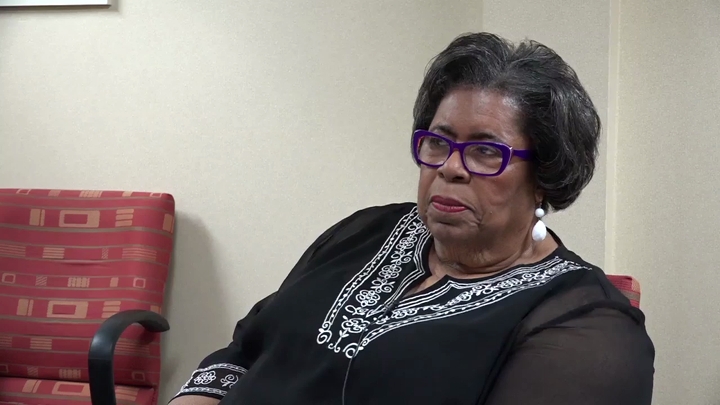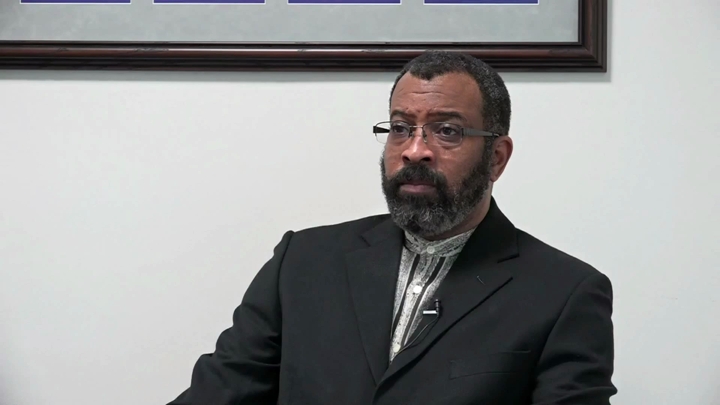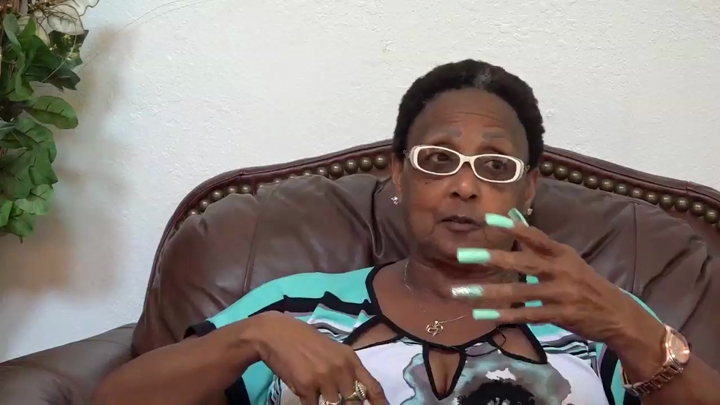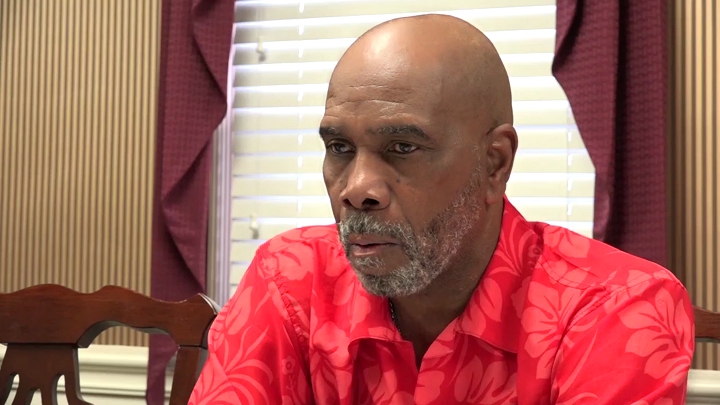Austin / Neighborhood Riot
sign up or sign in to add/edit transcript
Ms. Scott: When did you start getting involved in civil rights movements? Mr. Austin: That was way, when I was grown and married. I moved over on Riverside on Jefkin St. and I passed the house all the time, and I’d go on out to my wife and tell her. And on the other side of Hurst they called it Mosier Valley- a black community and we passed by this house and finally, they put a sign out in front of it, “FOR SALE”. I thought, ‘Let’s see why we can’t buy it”. It was in a white community, and the man was real nice. He worked for the southern company Merchants Freight Lines. I asked him if he’d sell it to me and he said, “I’ll sell it to anybody that has some money.” So he sold it to me. We went down and, we were so poor we only had enough to pay down on it and he gave what you call a second loan. We did it like that and he took a contract. We moved in there on Labor Day, I think, and I was working for a company called Blue Tag Feed and Seed, I think. I can't think of the real name right now. So I borrowed their truck over the weekend to move. I didn’t think anything about it. I went to work, and I drove their truck, I was buying a home and I had money to buy it. Well, we moved in and the white people started migrate. Just from everywhere. They started to pile in and they were calling us “niggers.” "Nigger" this, "Nigger" that. Well, we hadn’t done any harm to anybody. We just bought a house. So we were unloading our stuff to get it in the house and they were picking on us in all kinds of way. We got through with the moving and a fellow around the block he threatened to make us move because ‘there had never been no niggers around here’. So he said, “Don’t you want to move out of here, don’t you want to cause no trouble?” I said, “What are you talking about? I haven’t caused no trouble. I bought this house. This is my house.” “No, it isn’t your house. This is a white community and you shouldn’t be in here.” “Well I may not be supposed to be in here but I bought it.” So they tried to make me move. All of the dignitaries uptown and “big shots” of the Fort Worth National Bank had a meeting with me. Big long table, that was longer than this room-- Scott: Do you remember any of their names? Austin: I don’t want to call their names. Scott: [Chuckles] Austin: But anyway, they had a big meeting and I think the [mayor cheered it] [unclear]. So they ask me, “Lloyd, don’t you want to move out of this place and have peace?” And I said, “What do you mean, I have peace. I’m not causing anyone no trouble. I’m paying for this, I bought it. How come I can’t have it?” “Well, you’re causing trouble out there in that White community and [blah blah blah--” And I thought, ‘Well I thought this was America. I’m not moving anywhere.’ So finally, the chairman said, “Well, this nigger, you heard what he said. This meeting is adjourned.” So fine with me. I ain't moving. So they all went about their way. I didn’t move. So they kept picking at me--the white people did. So one day I was sitting in the living room and they were talking about burning my house down. So I said to my wife, “Well, Macey, I think I’ve had enough of this. I don’t think I can handle any more of this. I’m going to hurt me somebody.” So I had a rifle. Still got it. 22 rifle. It was 13 pump. [makes a pumping movement]. So I went in there and raised the window and the street was like that, [puts hands together], packed. And I shot out of that window. I just raised it up high enough to shoot out of. “POW!” Everybody was running and jumping and going. And there was a man who had a 1955 Chevrolet. He lived way out there, [points outward] by TCU [Texas Christian University] somewhere. His son was over there visiting his girlfriend. Well anyway, the bullet ricocheted off the front of his car. It didn’t hit nobody, it just hit the front of his car and ricocheted. Well, then he says, over there in the _Fort Worth Star Telegram_, “We’re going to run this here nigger out of here because he hit my car.” [unclear] Now look at this, I’ve been down to the city of Fort Worth and called the police when they were talking about what all they were going to do to me. And I called and said I was having trouble out here on Riverside and Jenkins, 209 N. Jenkins [unclear] “Has anybody been hurt?” I said no. And then in the meantime, the lady that called in front of me, when we moved in there, she started picking on me. She would drink and get drunk and then come knock on my door and shake it. Then she said to the rest of them, “One nigger man against all of you, and y'all can’t make him move?” She’d say that all the time. So I called the police and they didn’t come to see me. That’s when I got the rifle and shot out the window and in five minutes, the police were out there on my street and the chief of police was saying, “Everybody who doesn’t live on this street--I want y'all out of here in five minutes. Do you understand me? Out of here.” So they put a patrol out there from the police department. They stayed out there twenty-four hours a day. Nobody got hurt. Then the policeman came over to me and said, “Now Lloyd, you can shoot at him, but don’t shoot nobody out there on the sidewalk. They have to be in your yard,” I said, “Okay, I’m not trying to shoot anybody that doesn’t want to hurt me.” But he better not be in this yard. See, that’s private property. You get all the side walking in front of your house, you can’t hurt anybody there. But when he walks off of that sidewalk, up in your grass, and comes up to your door, you can do what you can do them, because he ain't got no business in your yard. That’s private property. That’s what the policeman told me. So they protected me on that.
| Interview | Interview with Lloyd Austin |
| Subjects | Housing › Neighborhoods › Residential Segregation |
| Race Relations › Black-Brown Race Relations | |
| Discrimination or Segregation › Discrimination or Segregation and Neighborhoods | |
| Tags | Fort Worth National Bank |
| sign up or sign in to add/edit tags | |
| Interview date | 2013-04-02 |
| Interview source | Texas Communities Oral History Project |
| Interviewees | Austin, Lloyd |
| Interviewers | Scott, Madison |
| Locations | Fort Worth, TX |
| Mosier Valley, TX | |
| Duration | 00:08:34 |
| Citation | "Neighborhood Riot," from Lloyd Austin oral history interview with Madison Scott, April 02, 2013, Fort Worth, TX, Civil Rights in Black and Brown Interview Database, https://crbb.tcu.edu/clips/2/housing-riots, accessed February 14, 2026 |






